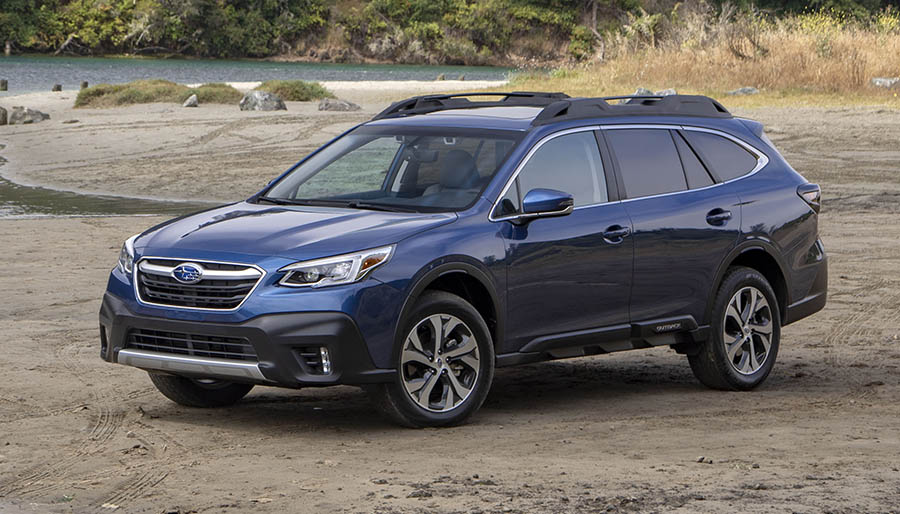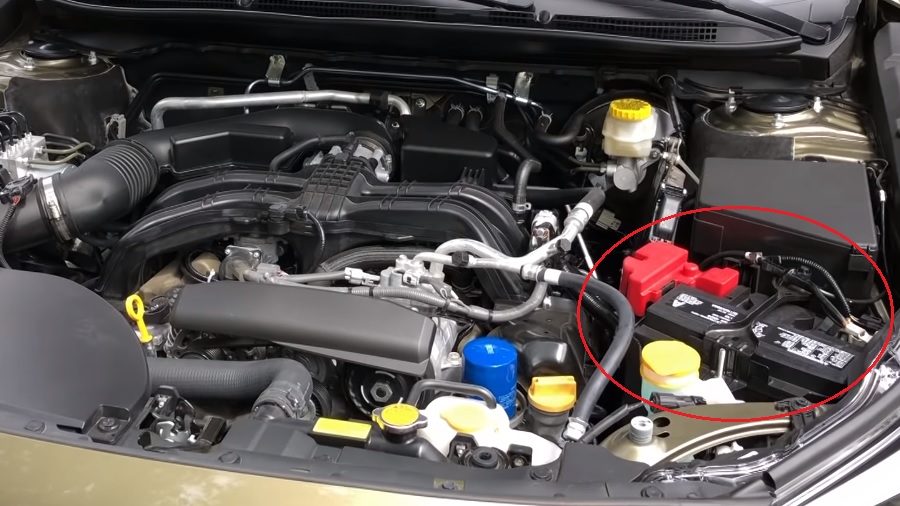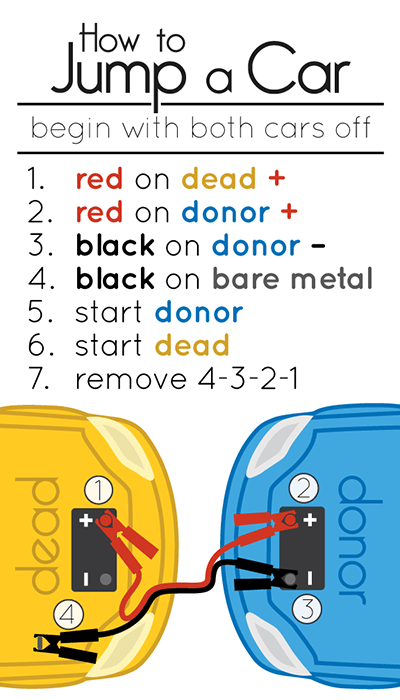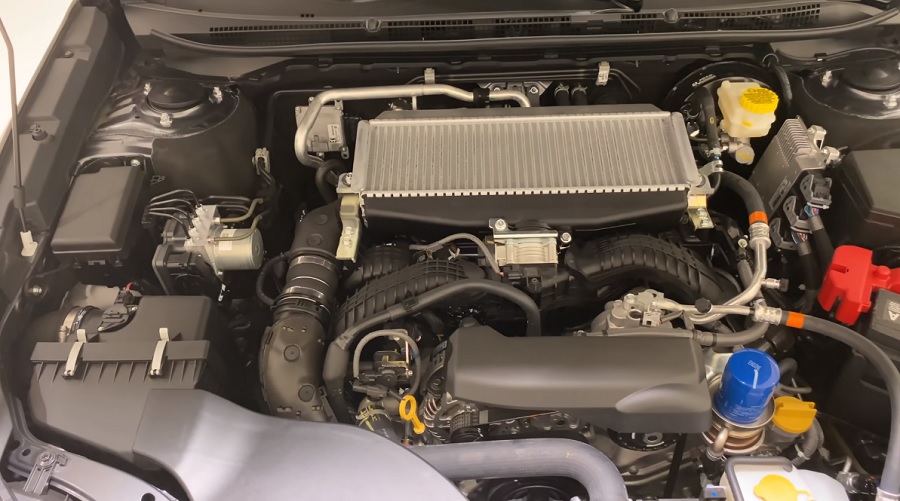Subaru Outback is a reliable road companion, but its a machine with hundreds of interconnected parts, and like any other machine it sometimes fail to deliver normal operation. In this article we go through most common causes of Outback breakdown and how you can fix the problem.

The most common causes that hinders normal starting operation of your Outback are dead 12v battery, corrosion on battery terminals, and dead key fob battery. However, bad alternator, clogged fuel filter, broken starter, blown fuse, empty gas tank, immobilizer error, or any fault in the electrical system can also cause your vehicle not to start.
1. Weak Battery
If your Outback’s engine won’t crank or cranks very slowly, then the most likely culprit is weak or dead 12v battery. Investigating more closely and doing a battery voltage test will clarify whether the starting problem is due to the battery. A test can be done to measure the voltage between the battery poles, check the acid level and assess the condition of the starter battery.
If a new car battery has been installed, the battery may not have yet reached its full capacity. There is nothing to worry about. A new battery only develops its full capacity over time.

Test 12v battery
The voltage of the battery on your Subaru Outback can be measured precisely with a multimeter. Before the test, the multimeter is set to the voltage range of the battery and connected to its plus and minus poles. Successful testing of the car battery, i.e. checking the voltage, usually results in values of approx. 12 to 13 volts. Values above 14 or below 11.5 volts require an expert assessment of the condition of the car battery. Because the battery may have a defect with these measured values and must be replaced.
Jump start Subaru Outback
If dead battery is the reason for the breakdown of your Outback, you can easily jump start it using jumper cables and a healthy battery from another vehicle, or using a battery booster if available.
First connect red cable to the positive terminal of your Outback’s dead battery, then to the positive terminal of donor battery. Next connect black cable to the negative terminal of donor battery, then to the bare metal in the engine bay of your Outback. Start the donor vehicle and then your Outback. Remove the cables in reverse order.

2. Corrosion on battery
Corrosion on the contacts of your car battery leads to loss of contact and reduced current flow, which means that your engine can no longer start properly.
To know if your Outback’s starting problems are from dirty battery contacts, you need to investigate them. If you lift the rubber covers over the two battery terminals, you can check the terminals for corrosion. If you discover white deposits or silvery-green deposits, but no further cracks or damage, you do not have to replace the battery, just clean it.
Clean battery corrosion
To clean the battery on your Subaru Outback, you have to remove the pole cables first, which requires no special knowledge, just a little concentration, as the order is very important. First remove the black cable from the negative pole. If the pole clamp is very tight, you can open it with pliers. We advise against using metal pliers, but if you use them, you must make sure that you do not touch any other parts of the body. Next you can unplug the red positive pole cable. Once the battery has been removed from the circuit, you can start cleaning the corroded battery. After cleaning, reconnect the terminals.
3. Weak key fob battery
If your Outback has push start/stop button, then its possible that your vehicle may not start due to weak key fob battery. Don’t worry, you can still start your vehicle – the battery is only used to send the signal for locking/unlocking. If the key fob battery is empty, the door no longer locks or unlocks at the push of a button. The doors must then be opened manually. The immobilizer is controlled by a passive transponder. Passive means, among other things, that the transponder in the key does not need its own power source.
How to start Subaru Outback with dead key fob battery
If you have a model of Outback which only has a key fob with start/stop button and no place to insert a key, then try placing your key fob as close to the start/stop button as you can and then start the vehicle.
Tip: You can try starting your Outback with its second key. It will also rule out any other problem with the first key, for example, water damage.
4. Broken starter motor
A starter is a motor for starting the engine of your Outback. The average life of a starter motor is about 100,000 to 150,000 miles, and the life will be shortened if the engine is started more frequently. In any case, since the starter motor also has a limited life, it will break down after using the car for a long time, and if the starter motor breaks down, the engine will not start.
Symptom: When you turn the key to start the engine of your Outback, you will hear a clicking sound, which is the sound of a bad starter motor. And if the starter motor does not work with a healthy battery, suspect a malfunction of the starter.
If the starter fails, it usually needs to be replaced with a new one.
Temporary fix for starter
If the engine does not start due to the starter, the engine may start if you turn the key while hitting the starter motor with something like a stick or metal tool. This workaround is effective when the parts inside the starter are stuck together or the gears are slightly out of alignment.
However, it is possible that the starter is nearing the end of its life, so it is recommended that you have it inspected at a dealer or maintenance shop.
5. Defective alternator
An alternator is a generator that produces electricity. If your Outback’s alternator fails, it will not be able to produce electricity and the battery will not be able to charge. Therefore, even if you think that the cause of the engine not starting is a battery failure and replace the battery, the battery will soon run out and the engine will not start.
Alternators rarely break down. In particular, modern cars have improved performance, so it is said that they will last 200,000 to 300,000 miles. Still, it can break down depending on how you use it, and in the case of a used car, the alternator may be quite old. Don’t let your guard down.
If the alternator breaks down, it must be replaced with a new alternator.
6. Clogged fuel filter
The fuel filter of your Outback does not wear out like a mechanical part, but it gets clogged by dirt and airborne particles and clogs over time. The permeability of the filter drops, and so does the fuel pressure. To a certain extent this doesn’t matter, but if the fuel filter is too dirty, the engine will no longer perform at full capacity and in some instance may not start at all. Cleaning is not possible, you can only change the filter.
7. Fuel pump failure
If your Outback’s fuel pump fails, then the engine won’t start. The pump normally ensures that the necessary amount of fuel is passed from the tank to the injection system of the engine with sufficient pressure.
Before your fuel pump stops working, it usually becomes noticeable: if your car’s engine breaks down from time to time, the car is difficult to start, the engine jerks a little or the engine performance drops, you should have your pump checked.
Wear or contamination of the pump can be the reason for this. If the pump is leaking, a power contact is broken, a line or a pump lever is broken, the fuel pump is usually also noticeable before failure. You can have a defective fuel pump replaced in your workshop.
8. Blown fuse
In rare cases, a blown fuse could also be the culprit in the breakdown of your Outback. Check all fuses in the fuse box essential for starting the engine. But, be careful when lending a hand yourself to the fuse box! The box is under power and repairs or tests should always be done in a workshop.
9. Defective spark plugs
Without functioning spark plugs, the engine will not start. The spark plugs themselves are often not affected by a defect. Instead, plug connections on the ignition system come loose. If only one plug is actually loose, you can fix the problem yourself on site. If a spark plug has failed, it must be replaced in the workshop.
10. Rodent damage
Rodent damage can be another reason why your Subaru Outback won’t start. The animals crawl under the vehicle and bite through cables and wires. In principle, this can affect all vehicle systems such as the fuel supply, the oil supply or the power supply.
The rodent damage can usually be seen quickly by looking into the engine compartment. The damage caused by the rodent bite can be repaired in the workshop. Be prepared for relatively high costs here.
11. Engine failure
Although very rare, but it can also be the cause of the breakdown of your Outback. If a vehicle has an engine failure, then nothing works anymore. It is not uncommon for the driver of a vehicle to be responsible for such damage. Typical causes include tearing of the timing belt, incorrect fueling, insufficient oil, hydrolock, overheating of the engine, or continuous driving in an excessive speed range.

Only an experienced mechanic can diagnose engine failure in a workshop.
Use OBD2 scanner for diagnosis
Since Subaru Outback is equipped with on-board diagnostics (OBD), a fault diagnosis can provide initial indications of where the malfunction is located.
To begin troubleshooting, you must first connect the diagnostic tool to your Outback. The OBDII connector is usually located under the dashboard. With the wire connected, you should turn the ignition on. But be careful not to start the engine. Most diagnostic devices then ask for some information about the vehicle. It is important that you enter this 100% correctly, otherwise the result of the search may be falsified. In addition to the vehicle manufacturer and model, you usually also have to type in the engine and vehicle ID number. For exact troubleshooting, always check whether the information is correct.
Conclusion
There are many reasons why your Outback may not start. When looking for the trigger, you should always start with the most obvious cause, the empty battery.
In any case, it is advisable for laypersons to call a breakdown service or a workshop. In the event of a defect, the latter can directly initiate the repair.





Another cause of non starting which happened to my 2016 Subaru Outback Ye on a 15 degree Fahrenheit day: after driving a few miles, the car failed to start after being stopped for 15 minutes.
Some reports blame battery discharging, and/or not being charged when the interior fan is not on high. This has happened to me before. Keeping the fan on high has seemingly solved this problem for the time being maybe.
Please do not recommend purchasing new batteries as first alternative, starter being broken and ticking is so obvious so as not to need mentioning. Thanks for your column.
My outback has trouble on the initial start after a cold night. After that it is fine to start up quickly. Is there something I can do on cold mornings?
My subaru outback won’t start. AAA tried charging the battery with a battery pack, battery cables and then a new battery. Battery read fine. Starter read fine. All lights were on in the dash board. Key fob won’t work. Head lights come on and seat moves up. Finally got it towed to mechanic. They checked the fuses. They did a diagnostic and it couldn’t find anything wrong. Still won’t start.